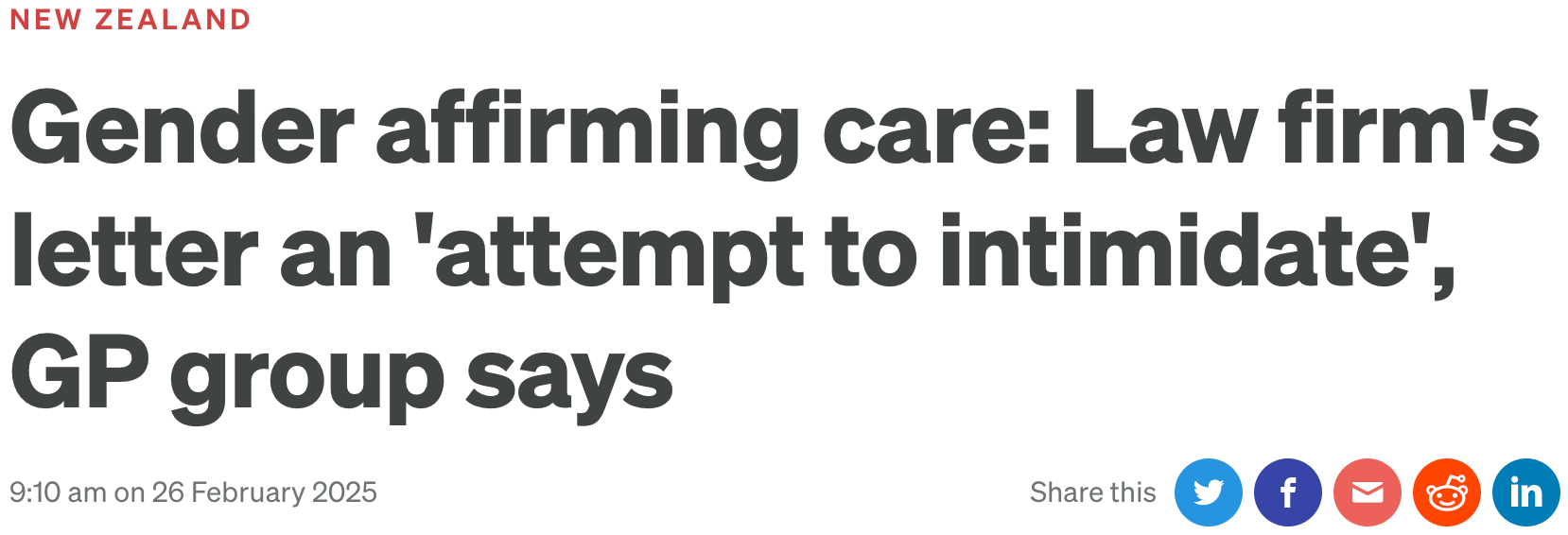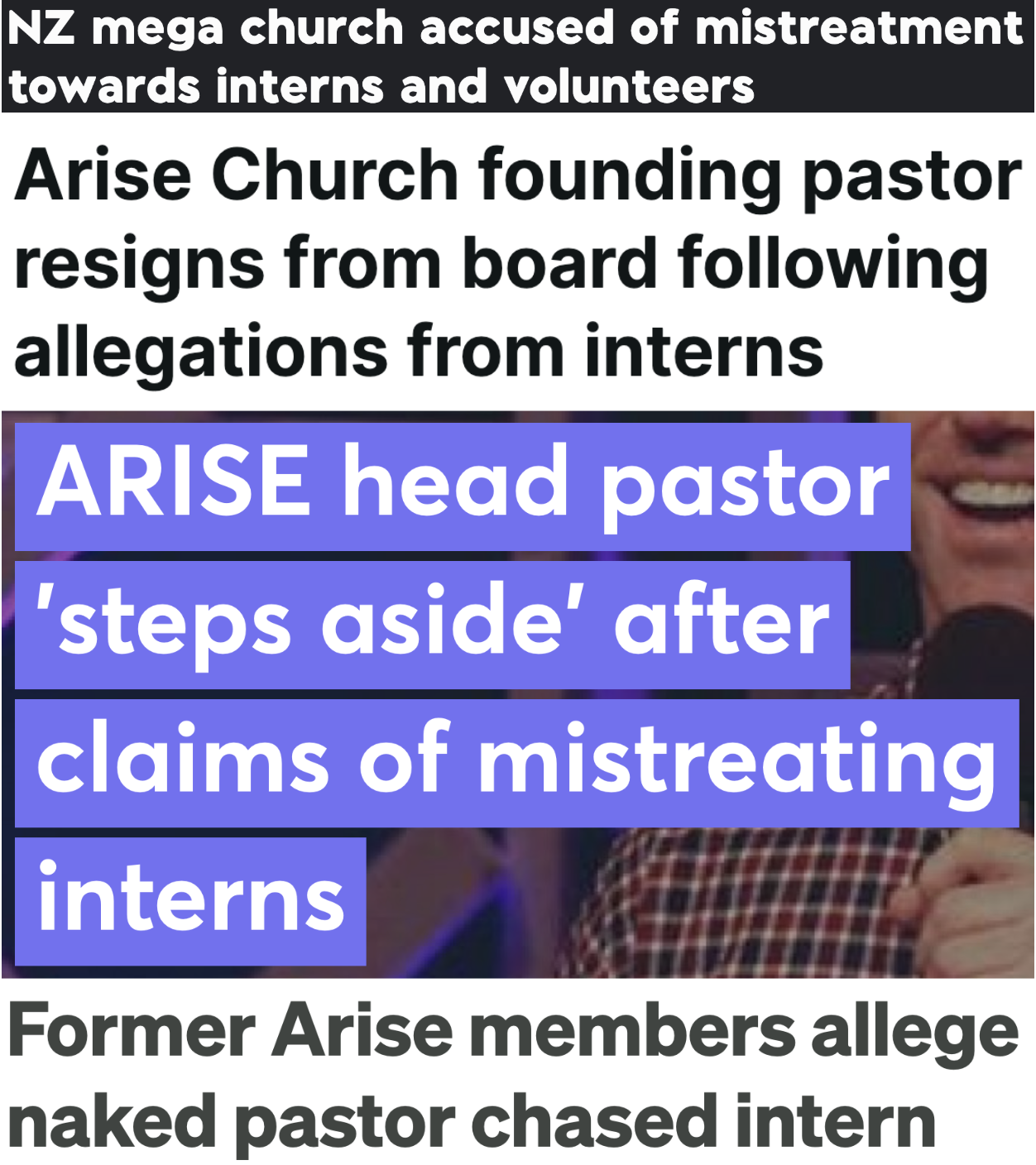The Glowing Light of You, the Reader
"I saw Stephen piss all over his own shoes, like absolutely drench them."

Hi,
Because the Webworm community is consistently a glowing light in my life, I wanted to share a few insights readers shared about Franks Ogilvie, the feral law firm that sent a threatening legal letter to Kiwi health professionals.
(A lot of you asked for a copy of the original threatening letter, which I have published here).
Jackson shared his first hand encounter with Stephen Franks:
“The thing that gets me is one time when I worked at parliament, I saw Stephen piss all over his own shoes, like absolutely drench them. It was like he wasn’t even paying attention. Didn’t even wipe them off. Truly reprehensible.”
See what I mean? I felt the sun on my face, gently glowing through the haze.

Aimee added this:
“Bizarre how libertarians who supposedly believe in individual freedoms are trying to police and regulate other people’s lives and genitals.”
I could not agree more.
This week also reminded me of what I love so much about the way Webworm works — and maybe this is boring and getting in the weeds and you don’t care, but bear with me. This thing I write is yours as much as mine, so hopefully what I am about to say is interesting.
I published the story about Franks Ogilvie on Monday after being contacted by scared healthcare workers. As is the case with all Webworm’s public interest journalism, it was free to read.
No paywall.
Because it was free to read, the article spread to places like Reddit — hitting the top of r/newzealand:

After 500 upvotes and 484 comments, it magically appeared on other media like Radio New Zealand:

To be fair, RNZ may have already been working on the story — and they added their own interviews, context and flourish. But there’s a part of me that is proud I was there first, and that my story was free to read — which allowed it to spread beyond Webworm’s relatively small audience.
Because here’s the thing:
After I’d written my story, I discovered that another outlet called NZ Doctor had beaten my “scoop” by about four days. But because that NZ Doctor article was paywalled, it hadn’t spread anywhere else. It wasn’t on Reddit. No one was talking about it. And that is because of the paywall: a subscription to NZ Doctor costing $250 a year.
This isn’t to detract from NZ Doctor in any way — that subscription fee powers a small newsroom that breaks important health stories.
But I’d argue paywalls like that mean stories don’t spread, because they’re much less accessible — ring-fenced for a small group. It’s the flaw in the model.
And that brings me to my main point (and what I am so grateful for, and what makes Webworm special). If you pay for a Webworm subscription, you allow two things to happen:
a) You let Webworm exist
b) You allow me to keep the important stuff free and unpaywalled.
Both those points combined means that Webworm has a chance to have more impact. To create real change. I mean this literally — without this model, those shitty leaders of New Zealand’s biggest church wouldn’t have resigned in shame. That happened not just because Webworm reported on it, but because it was free to read and therefore able to spread:

This is why I am always banging on about asking you to share Webworms that you like!
This may seem like a contradiction. Why pay, if the important stuff is free? But of course without around 10% of Webworm readers paying for it, it would die. And I think anyone who pays understands this.
And it’s why I put extra effort into giving paying readers extra stuff. If you pay, you already know this — you get extra newsletters of a more personal nature (no porn), you get work in progress like Spaceman Barry, you get all of Hayden Donnell’s wonderful columns, you get Totally Normal every month, you get AMAs and t-shirt giveaways, and of course you get the comments section which is the only place I genuinely like talking to people online.
I love this model of journalism.
And with all that, some more feedback to the Franks Ogilvie story from you, my smart, wonderful, supportive readers. Couldn’t do it without you.
Scout:
“Thank you for this David. I’m just home from an intensive two day hui and training course in trans health, where I facilitated workshops and dialogue from healthcare professionals working in trans health.
We talked about best practice, we shared clinical skills, we got to connect in the face of all this crap, and our security guard didn’t have to deal with anything all day.
It is really important to note that yes, some health professionals are scared and put off, but a bigger group are galvanised and this bogus legal interpretation is only making them want to do this healthcare more.”
Jacey:
“Lawyer in the US, solicitor in the UK, and this is all fucking garbage, but a little insight on why it's difficult to police this: Lawyers are, in most common law countries self-policed on more nuanced areas of ethics.
Many ethics rules are guidelines and are not binding.
Intimidation tactics are exactly the sort of thing that falls into the grey area of “well you shouldn't do this,” but rarely end up included in rules with any real teeth attached to it.
Litigation is, at its core, an intimidation game.
We have an adversarial system, and almost any legal correspondence could be classified as an intimidation attempt. That very fine-line is the reason most jurisdictions don’t even attempt to interfere with abusive legal threats.
That said, there are some cases (see: straight up lying about grounds for a case, specific and targeted abuse towards an individual) that could lead to fines, but it’s very rare to see these cases come up and it depends on the ethics board (staffed by lawyers) of that jurisdiction.
This is all to say: Shakespeare had something of a point with ‘kill all the lawyers,’ but I hope someone raises this to the appropriate ethics board in New Zealand and that they see this abuse of the legal system for what it is.”
And this from a brainy lawyer who reads Webworm:
“You’re right that Rule 2.3 exists that says legal processes cannot be used for an improper purpose. The first forum for a Law Society complaint, if it passes through a triage process at the local branch, is to be referred to a Standards Committee. This is made up of practising lawyers and lay people, all volunteers. Committee decisions are confidential. A select few are published on the LS website in an anonymous, summarised format. Most complaints are heard and decided in this way so there’s limited visibility over what punishments are doled out, and what constitutes a breach (unsatisfactory conduct) at that level.
Some cases are published at higher levels — the LCRO is the appeal body for Standards Committee decisions, then judicial review for an LCRO decision. Then of course Disciplinary Tribunal decisions. These are of limited value because there isn’t a wealth of case law on each individual rule.
This is all to say it’s difficult, if not impossible, to see what would constitute an actual breach of this rule.
Some examples in case law for rule 2.3 include registering a caveat on a title to land knowing there is not a caveatable interest to exert some pressure over the landowner, inflating an invoice as a creditor to increase their own voting power for some sort of insolvency process I don’t completely understand, and some other very limited examples. If the ‘improper purpose’ isn’t illegal, the line is murky.
You’re also right that client instructions do not justify a rule breach. It’s up to the lawyer to push back or refuse to accept instructions if they’re inconsistent with ethical obligations. It wouldn’t be a defence to say ‘but my client told me to!’ If there was a breach of any of the rules.
There’s also a really high bar for referral to the Disciplinary Tribunal, which is the only authority that can suspend or strike off a lawyer.
I’m aware of at least one person lodging a complaint with the Law Society about this letter. In my view, which again is not legal advice, threatening healthcare workers with ‘legal action’ for any perceived breach in prescribing or providing care is arguably delineating the line between professional consequences and court action.
Any allegation of exceeding authority for those areas could only be dealt with by the HDC or a regulatory authority under the Health Practitioners Competence Assurance Act (I.e Nursing Council, Medical Council etc).
Is there some court involvement at some stages in these processes? Sure. The Health Practitioners Disciplinary Tribunal is court-like. The HDC can refer cases to the HPDT or the Human Rights Review Tribunal. There are some appeal rights to the High Court.
But threatening a healthcare worker with ‘legal action’ for possible breaches of their scope of practice, is misleading when the only bodies that can consider those breaches can be guided by complaints from laypeople, healthcare consumers or concerned members of the public, but prosecute according to very specific guidelines (so it’s not up to the individual to prosecute or commence legal action in those jurisdictions).
Any private court action could be barred by ACC legislation (if the allegation is a treatment injury), and any other cause of action would be novel, so untested. I’m just bewildered by what this threatened legal action would even look like.”
And I’d like to highlight this final comment from J, whose honesty I appreciate:
“Thank you for taking the time to cover this David, and to everyone in the comments section, too.
While I would never dream of changing our daughter’s trans-ness (is that a word?), or hope that she was cisgender — in some vague desire to avoid complication, in all honesty, I do sometimes find myself wishing we could have an easier, safer path where she has a better shot at a life less tortured by these absolute spanners?
And then I remind myself there are plenty of people who aren’t completely backwards about this and continue raising our delightful, challenging, maddening, adorable girl.”
As another Webworm reader said in reply to J, “Arohanui.”
Arohanui to all of you. Keep chatting in the comments section, keep sharing articles you like, and for those with the app… keep those pet photos flowing!
Thank you,
David.
PS: Since Flightless Bird split from Armchair Expert we’ve made about 30 fresh episodes — and I think the show is much, much better than it was. Live in Seattle. American Girl. Death Doulas. I think that, unrestrained, this often silly weekly podcast has found its feet.
But that’s not to say everyone’s a fan, as this feedback from Timmy indicates:

The reason I wanted to highlight this is because of the r-word Timmy used. In case you missed it, the word is being used by assholes again thanks to the biggest asshole, Elon Musk. Last week Musk started fighting with a Danish astronaut who dared to question him — a fight which ended in Musk tweeting this at astronaut Andreas Mogensen:

Since Musk first used the word, its use has tripled on Twitter/X. A quick study has found a 207.5% increase in posts containing the word, along with a huge increase in online searches.
Of course this comes from the same billionaire who once called a man trying to rescue kids from a Thai cave a “pedo”.
And to think that some people respect him.




